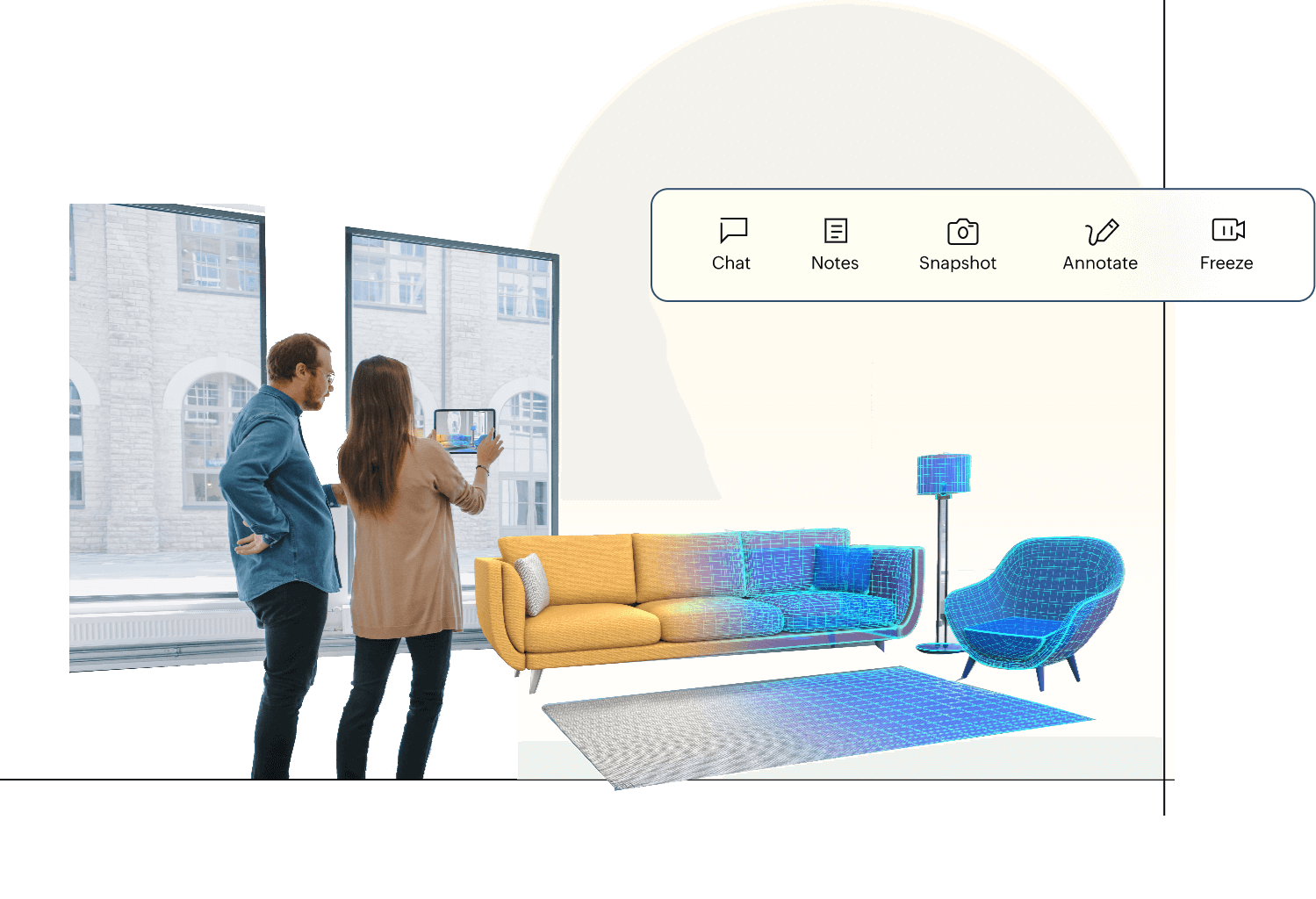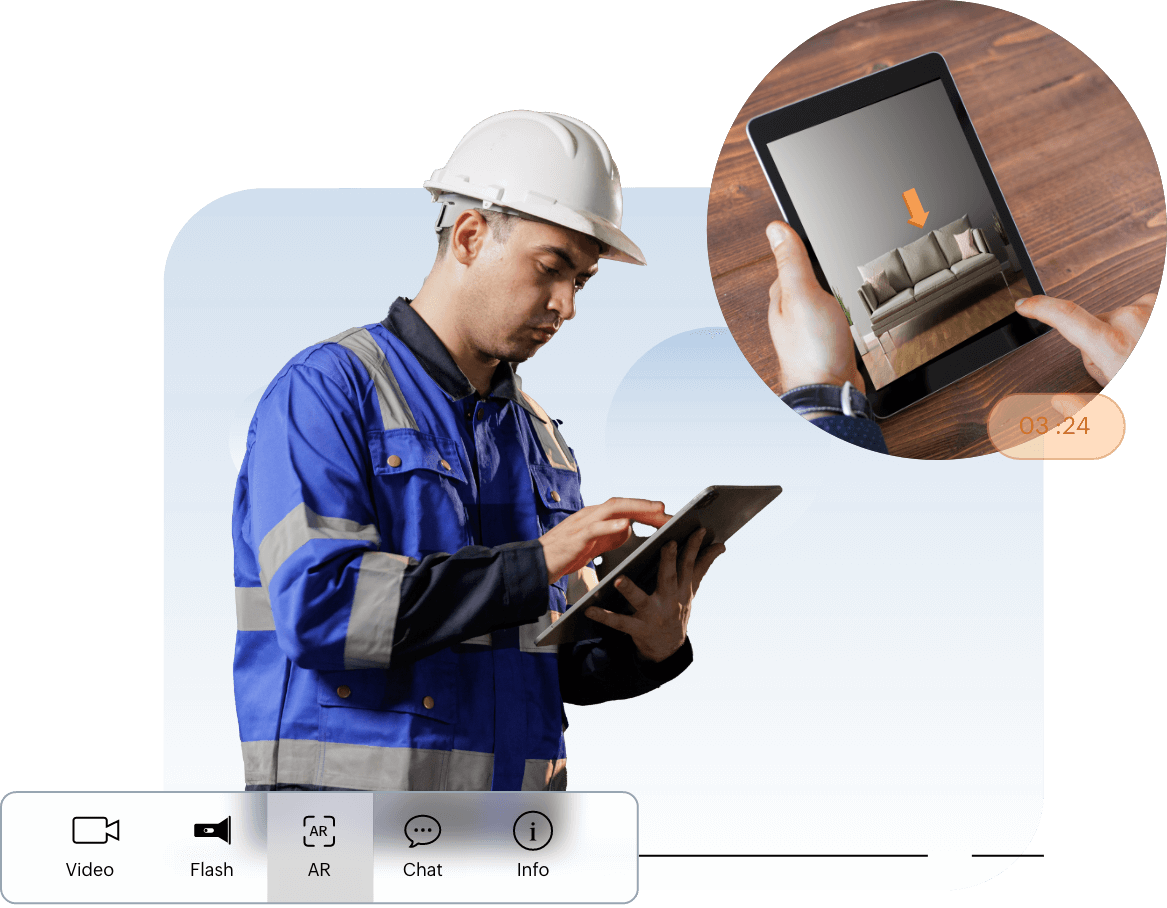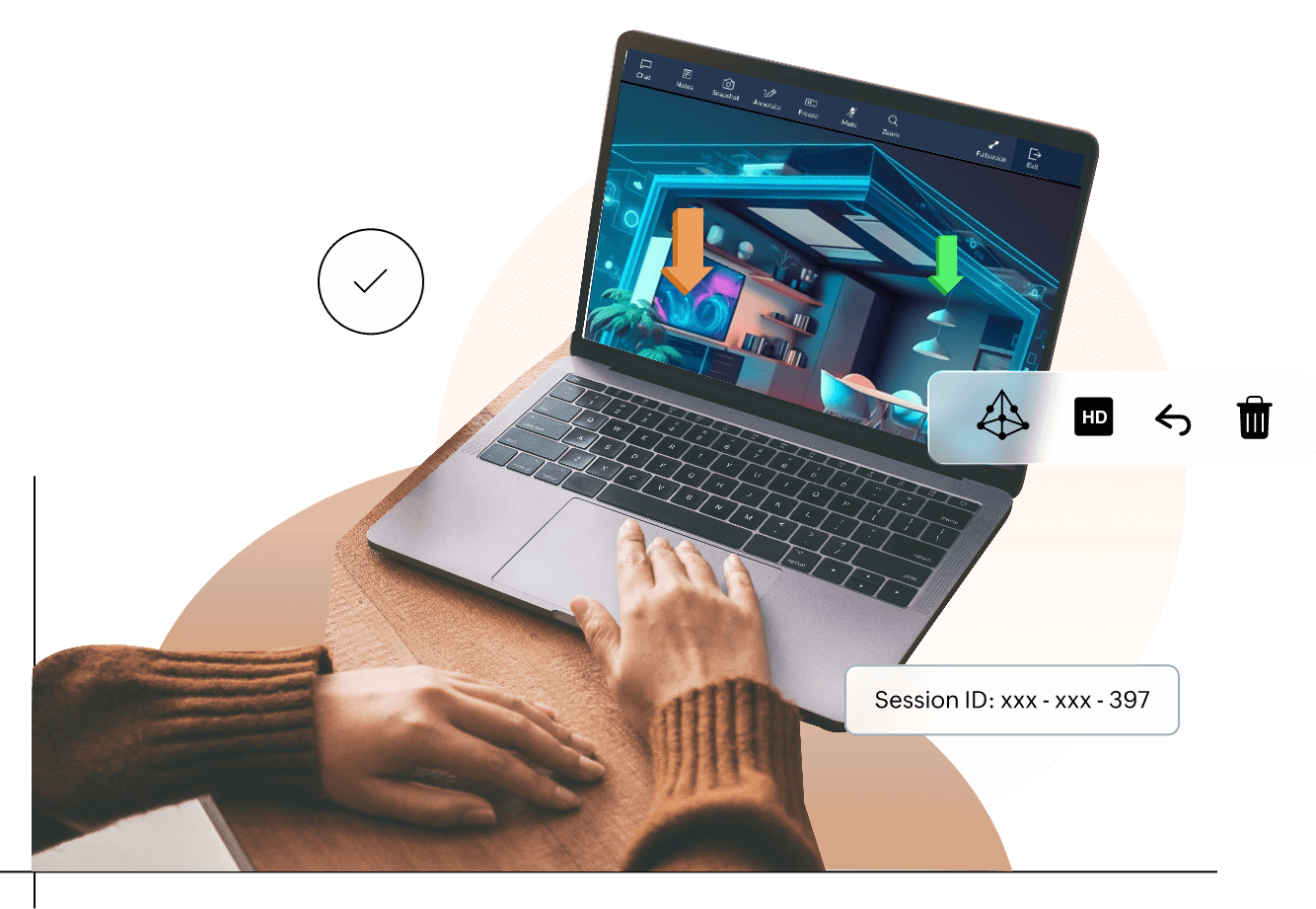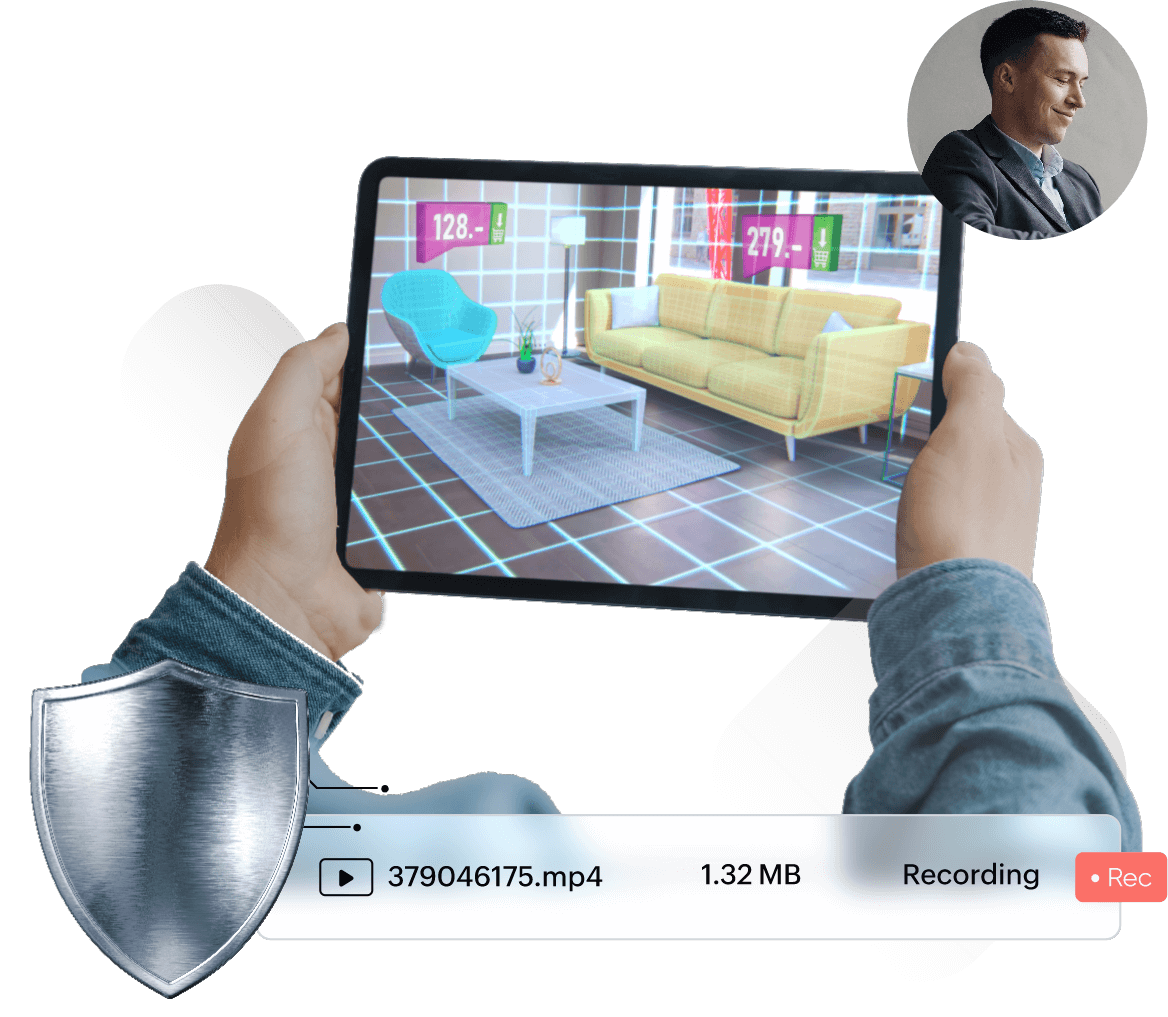Brands that trust Zoho Lens
What is AR in real estate?
Augmented reality (AR) in the real estate industry merges the physical and digital worlds to create interactive and immersive experiences for all stakeholders. It uses AR technology to overlay digital elements onto the prospect's real-world view, enhancing any area of land or property with contextual information.
Applications of AR/VR in real estate
When it comes to using augmented reality and virtual reality (VR) in real estate, each technology provides different immersion levels and safety thresholds. VR blocks out the physical world and displays a completely simulated environment, giving the user full immersion. Some of the most popular applications of AR and VR in real estate are:
- 3D property tours
- Architectural visualization
- Virtual staging
- Virtual renovations
Examples of augmented reality in real estate
Real estate agencies are adapting AR technology to transcend geographical distances and streamline transactional processes. Here are some augmented reality real estate examples using Zoho Lens.
Conduct live property tours
It can be challenging to schedule an appointment with a prospect, given the hassle of traveling long distances to view a property. Realtors and property owners can now bypass this hassle by giving a virtual tour of the apartment or villa. Prospects can use AR tools in Zoho Lens to point out their area of inquiry and get the required information right then and there.

Draft floor plans from anywhere
A floor plan is an essential step in a renovation or new construction. Augmented reality apps like Zoho Lens allow architects to connect with property owners at any location and take all of the required measurements right from their desk. Using these dimensions, they can draft a floor plan and share it with the owners in no time.

Provide on-the-go maintenance
Owners often drop by their properties to make sure their assets are being kept in prime condition. With Zoho Lens, they can skip the extra travel and connect with onsite security or tenants to get live visuals of their property at any point. They can also use augmented reality in construction for addressing technical issues in project sites, where experts can also join through an invite and guide the on-site person towards a solution.

Maintain extensive document trails
Documentation is essential at every stage of a transaction for legal and compliance purposes. Along with AR live streaming, realtors can also record their virtual tours, take snapshots of the measurements taken, and jot down notes of the maintenance work. These files can be accessed later and shared with stakeholders for their reference.

Benefits of augmented reality in real estate
AR in real estate helps realtors and prospects bridge knowledge gaps and reach a consensus with minimal effort. Other benefits of using Zoho Lens include:
- Expand property reach
- Enhance the prospect's experience
- Reduce travel time and cost
- Boost safety and productivity
- Increase property sales
The future of real estate AR
From immersive property tours to enhanced construction processes, AR for real estate and architecture offers numerous benefits that can improve workflow efficiency, marketing engagement, and the overall experience for both professionals and clients. As augmented and virtual reality for real estate continues to evolve, its integration into current practices will become more sophisticated, driving innovation and growth in the industry.
Key features of an augmented reality real estate app
These are some of the pivotal features of Zoho Lens that facilitate augmented reality real estate marketing and redefine how realtors and property owners work in the real estate industry.















AR measurement
This feature allows realtors to take live measurements during a remote assistance session and show the dimensions of the property to the buyer. Architects and interior designers also benefit immensely from this feature during renovation or construction.